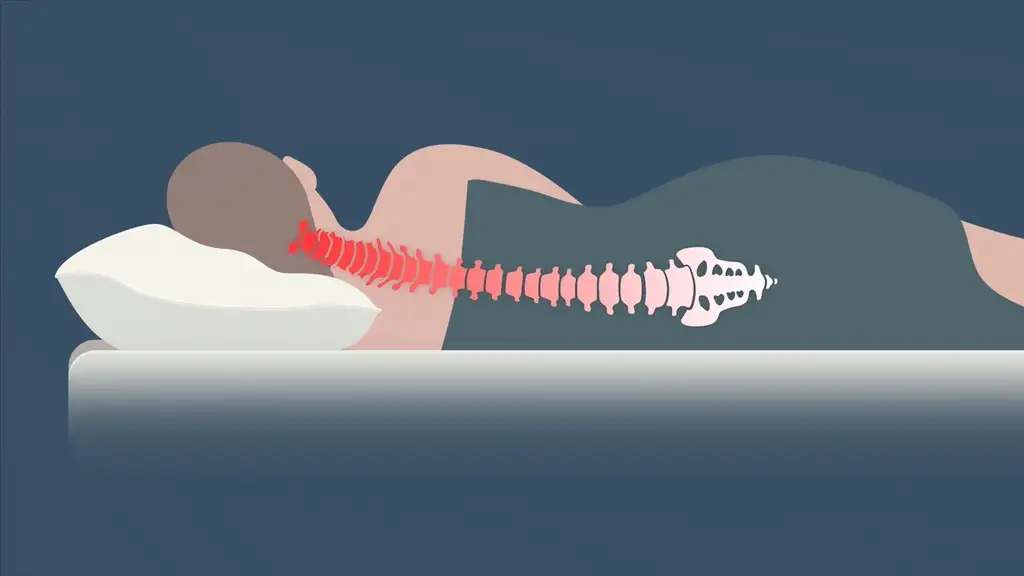Neck pain is a common issue faced by many, especially office workers and those dealing with chronic discomfort. While various factors contribute to neck pain, one aspect often underestimated is sleep. The quality and position of your sleep play a significant role in either preventing or aggravating neck pain. By understanding how sleep affects neck health, you can take actionable steps toward reducing discomfort and improving well-being.
The Impact of Sleep Quality on Neck Pain
Quality sleep influences how your body repairs itself overnight. Poor sleep can leave muscles, particularly those supporting the neck, more prone to tension and strain. Research shows that individuals who sleep fewer hours or have interrupted sleep cycles report higher levels of musculoskeletal pain. Without consistent, restorative sleep, your body may struggle to recover from daily physical stress, resulting in prolonged discomfort.
Additionally, inadequate sleep often leads to poor posture during the day. Tiredness affects how you hold yourself while working, slouching at a desk, or sitting for prolonged periods. Over time, this creates further strain on the neck, compounding the problem. Prioritizing quality sleep allows the muscles and joints to reset and supports better posture during waking hours.
The Role of Sleep Position in Neck Health
Sleeping position significantly impacts neck alignment and comfort. Certain positions place unnecessary tension on the cervical spine, leading to pain and stiffness. Sleepers who lie on their stomach place their neck in an awkward angle, which may result in discomfort upon waking. Side and back sleeping are generally considered better for maintaining a neutral alignment in the neck and spine. Using a pillow that fully supports the natural curve of the neck is key for avoiding strain. Back sleepers benefit from thinner pillows to prevent their head from being pushed forward. Side sleepers should opt for firmer pillows that keep their head level with the rest of the spine.
The Importance of Proper Bedding for Neck Comfort
Your mattress and pillows contribute significantly to neck pain prevention. A mattress that is too soft or too firm may lead to improper spine alignment, increasing the risk of waking with neck pain. Medium-firm mattresses are often recommended for supporting spinal health, providing a balance between cushioning and firmness.
Pillow choice plays a direct role in neck support. Memory foam and ergonomic pillows are popular options as they conform to the shape of your neck and head, providing consistent support. Over time, worn-out pillows lose their ability to provide proper support. Temperature regulation can also affect your sleep experience. Overheating disrupts sleep cycles and prevents the body from resting effectively. Choosing breathable pillow and mattress materials promotes a cooler, more comfortable sleep environment conducive to recovery.
The Factors that Affect Sleep and Neck Health
Beyond position and bedding, lifestyle factors influence both sleep quality and neck pain. Long hours spent working at a desk often result in neck tension due to poor ergonomic setups. Regular stretching and adjusting workstation ergonomics can alleviate some of the daily strain placed on the neck.
Stress also affects sleep, as heightened stress levels contribute to tension within the body, including the neck muscles. Incorporating relaxation techniques such as meditation or breathwork before bedtime can reduce stress and encourage deeper, more restorative rest.
Regular exercise supports better sleep and alleviates muscle tension. However, intense workouts close to bedtime can disturb sleep, so scheduling exercise earlier in the day is advisable. Combining physical activity with healthy habits such as a consistent bedtime and limiting screen time before bed creates an optimal environment for quality sleep.
Make Sleep a Priority to Improve Neck Health
Sleep plays a critical role in your body’s recovery and overall well-being, including the prevention and management of neck pain. By prioritizing aspects like quality rest, the right sleep position, and supportive bedding, you can significantly reduce the chances of waking up with discomfort. Adjusting your lifestyle habits to support better sleep creates long-term benefits for your health and productivity.
- Zirconia Cap Price: Estimated Cost & Its Long-Term Benefits
- FREHF – The Revolutionary Future Of Human-Centered Technology!
- Adsy.Pw/Hb3 – Boost Your SEO And Drive More Traffic!
- Fitness Based Vacations By Timeshealthmage.com!
- TimesHealthMag Tips For Improving Sleep Quality – Expert Advice For Better Rest!


Leave a Reply